Suhas Diggavi
Quantizing data for distributed learning
Dec 14, 2020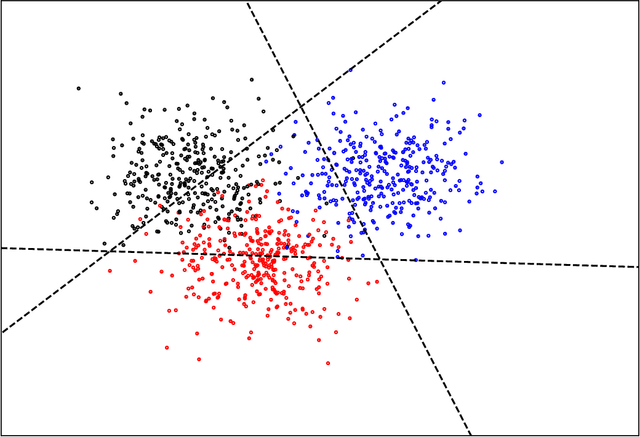
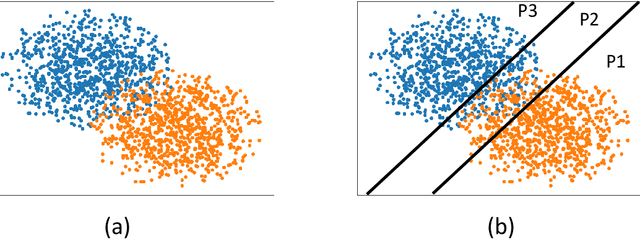


Abstract:We consider machine learning applications that train a model by leveraging data distributed over a network, where communication constraints can create a performance bottleneck. A number of recent approaches are proposing to overcome this bottleneck through compression of gradient updates. However, as models become larger, so does the size of the gradient updates. In this paper, we propose an alternate approach, that quantizes data instead of gradients, and can support learning over applications where the size of gradient updates is prohibitive. Our approach combines aspects of: (1) sample selection; (2) dataset quantization; and (3) gradient compensation. We analyze the convergence of the proposed approach for smooth convex and non-convex objective functions and show that we can achieve order optimal convergence rates with communication that mostly depends on the data rather than the model (gradient) dimension. We use our proposed algorithm to train ResNet models on the CIFAR-10 and ImageNet datasets, and show that we can achieve an order of magnitude savings over gradient compression methods.
Shuffled Model of Federated Learning: Privacy, Communication and Accuracy Trade-offs
Aug 17, 2020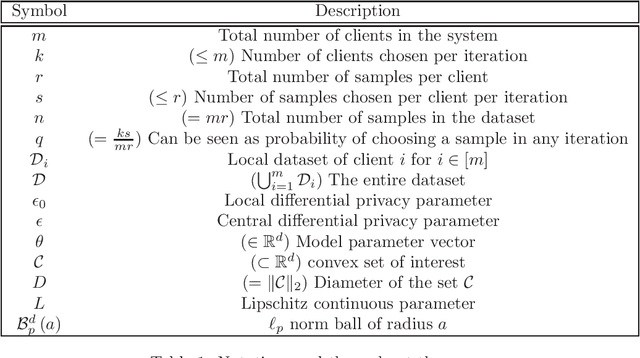
Abstract:We consider a distributed empirical risk minimization (ERM) optimization problem with communication efficiency and privacy requirements, motivated by the federated learning (FL) framework. Unique challenges to the traditional ERM problem in the context of FL include (i) need to provide privacy guarantees on clients' data, (ii) compress the communication between clients and the server, since clients might have low-bandwidth links, (iii) work with a dynamic client population at each round of communication between the server and the clients, as a small fraction of clients are sampled at each round. To address these challenges we develop (optimal) communication-efficient schemes for private mean estimation for several $\ell_p$ spaces, enabling efficient gradient aggregation for each iteration of the optimization solution of the ERM. We also provide lower and upper bounds for mean estimation with privacy and communication constraints for arbitrary $\ell_p$ spaces. To get the overall communication, privacy, and optimization performance operation point, we combine this with privacy amplification opportunities inherent to this setup. Our solution takes advantage of the inherent privacy amplification provided by client sampling and data sampling at each client (through Stochastic Gradient Descent) as well as the recently developed privacy framework using anonymization, which effectively presents to the server responses that are randomly shuffled with respect to the clients. Putting these together, we demonstrate that one can get the same privacy, optimization-performance operating point developed in recent methods that use full-precision communication, but at a much lower communication cost, i.e., effectively getting communication efficiency for "free".
Byzantine-Resilient High-Dimensional SGD with Local Iterations on Heterogeneous Data
Jun 22, 2020Abstract:We study stochastic gradient descent (SGD) with local iterations in the presence of malicious/Byzantine clients, motivated by the federated learning. The clients, instead of communicating with the central server in every iteration, maintain their local models, which they update by taking several SGD iterations based on their own datasets and then communicate the net update with the server, thereby achieving communication-efficiency. Furthermore, only a subset of clients communicate with the server, and this subset may be different at different synchronization times. The Byzantine clients may collaborate and send arbitrary vectors to the server to disrupt the learning process. To combat the adversary, we employ an efficient high-dimensional robust mean estimation algorithm at the server to filter-out corrupt vectors; and to analyze the outlier-filtering procedure, we develop a novel matrix concentration result that may be of independent interest. We provide convergence analyses for both strongly-convex and non-convex smooth objectives in the heterogeneous data setting, where different clients may have different local datasets, and we do not make any probabilistic assumptions on data generation. We believe that ours is the first Byzantine-resilient algorithm and analysis with local iterations. We derive our convergence results under minimal assumptions of bounded variance for SGD and bounded gradient dissimilarity (which captures heterogeneity among local datasets); and we provide bounds on these quantities in the statistical heterogeneous data setting. We also extend our results to the case when clients compute full-batch gradients.
Successive Refinement of Privacy
May 24, 2020

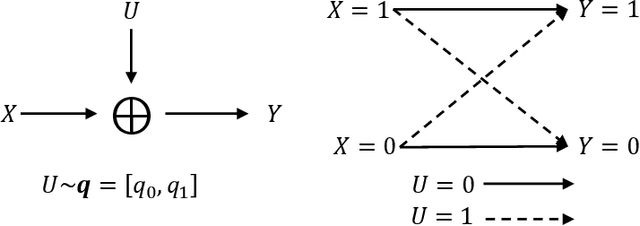
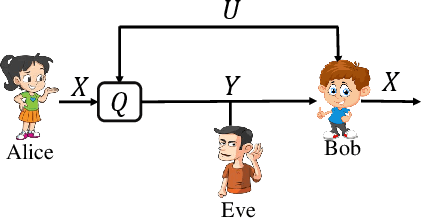
Abstract:This work examines a novel question: how much randomness is needed to achieve local differential privacy (LDP)? A motivating scenario is providing {\em multiple levels of privacy} to multiple analysts, either for distribution or for heavy-hitter estimation, using the \emph{same} (randomized) output. We call this setting \emph{successive refinement of privacy}, as it provides hierarchical access to the raw data with different privacy levels. For example, the same randomized output could enable one analyst to reconstruct the input, while another can only estimate the distribution subject to LDP requirements. This extends the classical Shannon (wiretap) security setting to local differential privacy. We provide (order-wise) tight characterizations of privacy-utility-randomness trade-offs in several cases for distribution estimation, including the standard LDP setting under a randomness constraint. We also provide a non-trivial privacy mechanism for multi-level privacy. Furthermore, we show that we cannot reuse random keys over time while preserving privacy of each user.
Byzantine-Resilient SGD in High Dimensions on Heterogeneous Data
May 16, 2020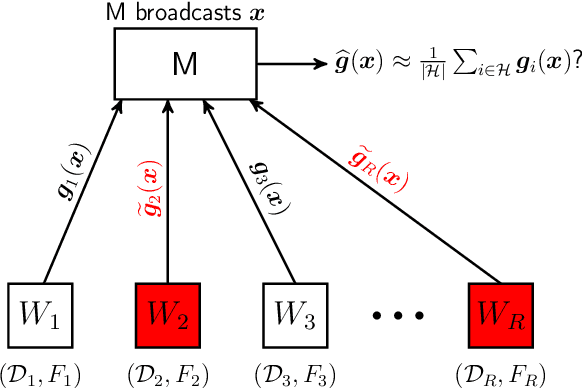
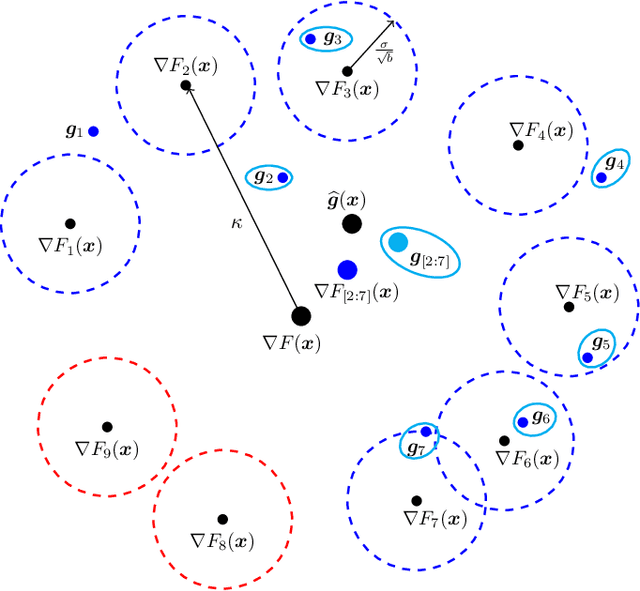
Abstract:We study distributed stochastic gradient descent (SGD) in the master-worker architecture under Byzantine attacks. We consider the heterogeneous data model, where different workers may have different local datasets, and we do not make any probabilistic assumptions on data generation. At the core of our algorithm, we use the polynomial-time outlier-filtering procedure for robust mean estimation proposed by Steinhardt et al. (ITCS 2018) to filter-out corrupt gradients. In order to be able to apply their filtering procedure in our {\em heterogeneous} data setting where workers compute {\em stochastic} gradients, we derive a new matrix concentration result, which may be of independent interest. We provide convergence analyses for smooth strongly-convex and non-convex objectives. We derive our results under the bounded variance assumption on local stochastic gradients and a {\em deterministic} condition on datasets, namely, gradient dissimilarity; and for both these quantities, we provide concrete bounds in the statistical heterogeneous data model. We give a trade-off between the mini-batch size for stochastic gradients and the approximation error. Our algorithm can tolerate up to $\frac{1}{4}$ fraction Byzantine workers. It can find approximate optimal parameters in the strongly-convex setting exponentially fast and reach to an approximate stationary point in the non-convex setting with a linear speed, thus, matching the convergence rates of vanilla SGD in the Byzantine-free setting. We also propose and analyze a Byzantine-resilient SGD algorithm with gradient compression, where workers send $k$ random coordinates of their gradients. Under mild conditions, we show a $\frac{d}{k}$-factor saving in communication bits as well as decoding complexity over our compression-free algorithm without affecting its convergence rate (order-wise) and the approximation error.
SQuARM-SGD: Communication-Efficient Momentum SGD for Decentralized Optimization
May 13, 2020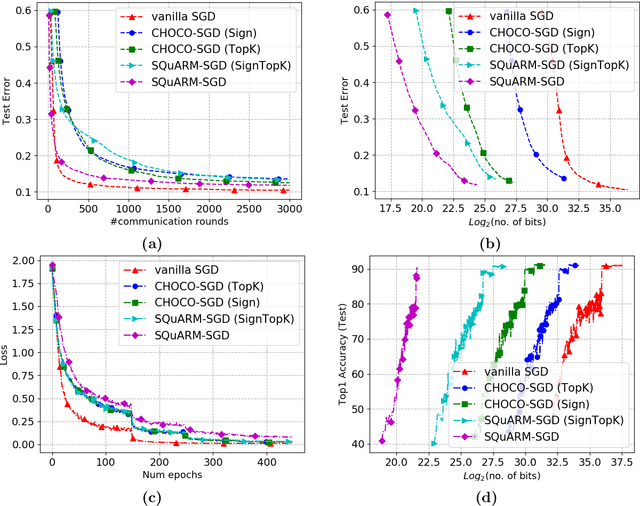
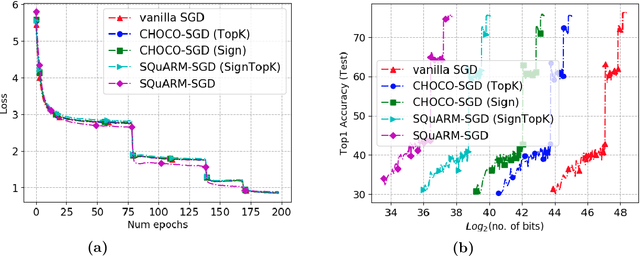
Abstract:In this paper, we consider the problem of communication-efficient decentralized training of large-scale machine learning models over a network. We propose and analyze SQuARM-SGD, an algorithm for decentralized training, which employs {\em momentum} and {\em compressed communication} between nodes regulated by a locally computable triggering condition in stochastic gradient descent (SGD). In SQuARM-SGD, each node performs a fixed number of local SGD steps using Nesterov's momentum and then sends sparisified and quantized updates to its neighbors only when there is a significant change in the model parameters since the last time communication occurred. We provide convergence guarantees of our algorithm for (smooth) strongly convex and non-convex objectives, and show that SQuARM-SGD converges at a rate of $\mathcal{O}\left(\nicefrac{1}{nT}\right)$ for strongly convex objectives, while for non-convex objectives it convergences at a rate of $\mathcal{O}\left(\nicefrac{1}{\sqrt{nT}}\right)$, thus matching the convergence rate of \emph{vanilla} distributed SGD in both these settings. We corroborate our theoretical understanding with experiments and compare the performance of our algorithm with the state-of-the-art, showing that without sacrificing much on the accuracy, SQuARM-SGD converges at a similar rate while saving significantly in total communicated bits.
On Distributed Quantization for Classification
Nov 01, 2019
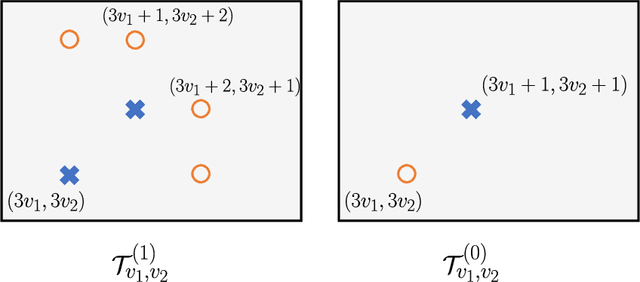
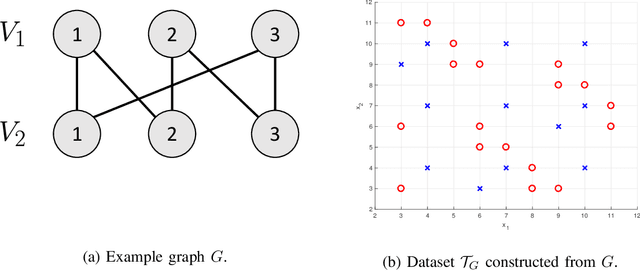
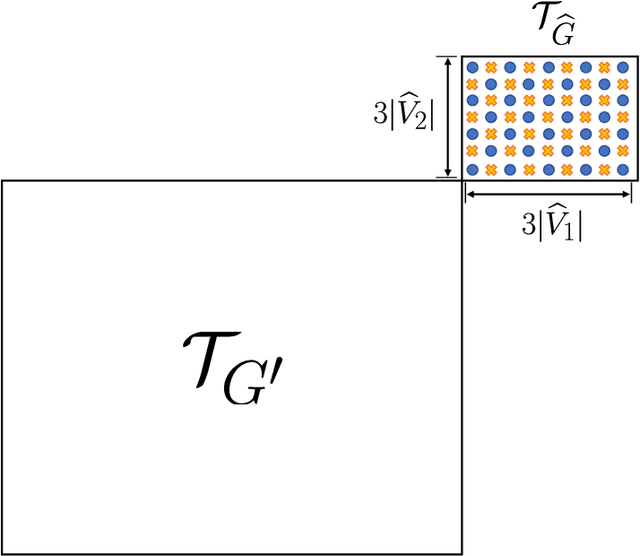
Abstract:We consider the problem of distributed feature quantization, where the goal is to enable a pretrained classifier at a central node to carry out its classification on features that are gathered from distributed nodes through communication constrained channels. We propose the design of distributed quantization schemes specifically tailored to the classification task: unlike quantization schemes that help the central node reconstruct the original signal as accurately as possible, our focus is not reconstruction accuracy, but instead correct classification. Our work does not make any apriori distributional assumptions on the data, but instead uses training data for the quantizer design. Our main contributions include: we prove NP-hardness of finding optimal quantizers in the general case; we design an optimal scheme for a special case; we propose quantization algorithms, that leverage discrete neural representations and training data, and can be designed in polynomial-time for any number of features, any number of classes, and arbitrary division of features across the distributed nodes. We find that tailoring the quantizers to the classification task can offer significant savings: as compared to alternatives, we can achieve more than a factor of two reduction in terms of the number of bits communicated, for the same classification accuracy.
SPARQ-SGD: Event-Triggered and Compressed Communication in Decentralized Stochastic Optimization
Oct 31, 2019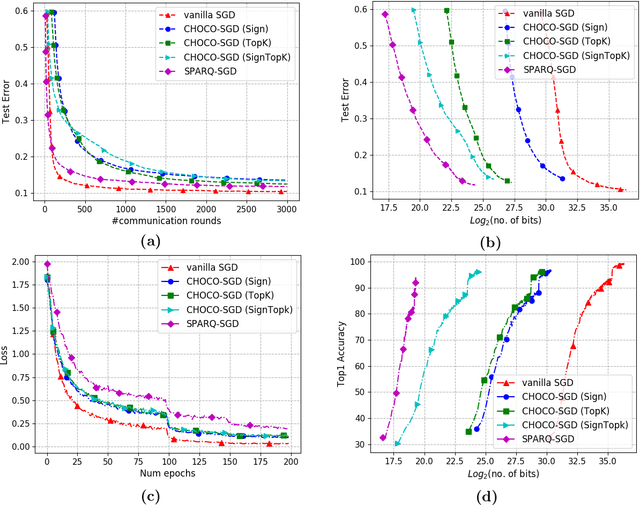
Abstract:In this paper, we propose and analyze SPARQ-SGD, which is an event-triggered and compressed algorithm for decentralized training of large-scale machine learning models. Each node can locally compute a condition (event) which triggers a communication where quantized and sparsified local model parameters are sent. In SPARQ-SGD each node takes at least a fixed number ($H$) of local gradient steps and then checks if the model parameters have significantly changed compared to its last update; it communicates further compressed model parameters only when there is a significant change, as specified by a (design) criterion. We prove that the SPARQ-SGD converges as $O(\frac{1}{nT})$ and $O(\frac{1}{\sqrt{nT}})$ in the strongly-convex and non-convex settings, respectively, demonstrating that such aggressive compression, including event-triggered communication, model sparsification and quantization does not affect the overall convergence rate as compared to uncompressed decentralized training; thereby theoretically yielding communication efficiency for "free". We evaluate SPARQ-SGD over real datasets to demonstrate significant amount of savings in communication over the state-of-the-art.
Data Encoding for Byzantine-Resilient Distributed Optimization
Jul 05, 2019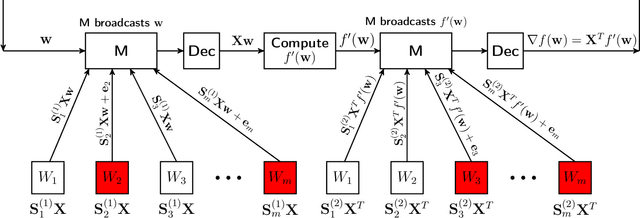


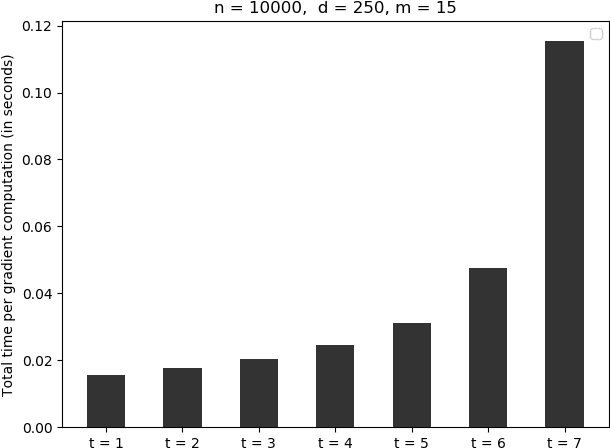
Abstract:We study distributed optimization in the presence of Byzantine adversaries, where both data and computation are distributed among $m$ worker machines, $t$ of which can be corrupt and collaboratively deviate arbitrarily from their pre-specified programs, and a designated (master) node iteratively computes the model/parameter vector for {\em generalized linear models}. In this work, we primarily focus on two iterative algorithms: {\em Proximal Gradient Descent} (PGD) and {\em Coordinate Descent} (CD). Gradient descent (GD) is a special case of these algorithms. PGD is typically used in the data-parallel setting, where data is partitioned across different samples, whereas, CD is used in the model-parallelism setting, where the data is partitioned across the parameter space. In this paper, we propose a method based on data encoding and error correction over real numbers to combat adversarial attacks. We can tolerate up to $t\leq \lfloor\frac{m-1}{2}\rfloor$ corrupt worker nodes, which is information-theoretically optimal. We give deterministic guarantees, and our method does not assume any probability distribution on the data. We develop a {\em sparse} encoding scheme which enables computationally efficient data encoding and decoding. We demonstrate a trade-off between corruption threshold and the resource requirement (storage and computational/communication complexity). As an example, for $t\leq\frac{m}{3}$, our scheme incurs only a {\em constant} overhead on these resources, over that required by the plain distributed PGD/CD algorithms which provide no adversarial protection. Our encoding scheme extends {\em efficiently} to (i) the data streaming model, where data samples come in an online fashion and are encoded as they arrive, and (ii) making {\em stochastic gradient descent} (SGD) Byzantine-resilient. In the end, we give experimental results to show the efficacy of our method.
Qsparse-local-SGD: Distributed SGD with Quantization, Sparsification, and Local Computations
Jun 06, 2019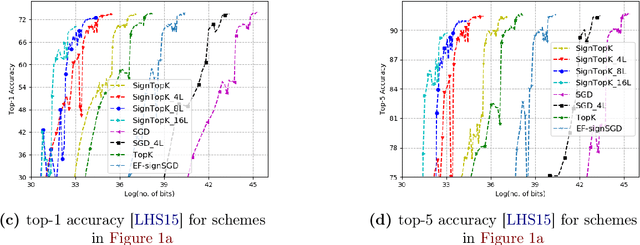
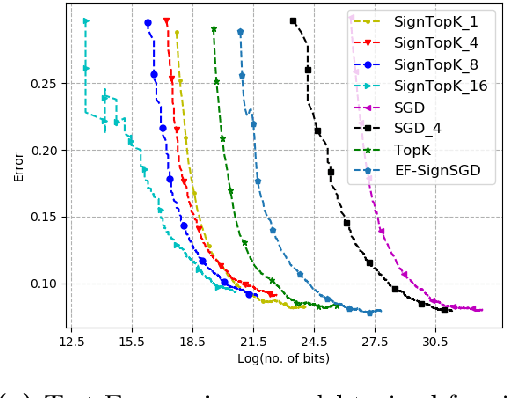
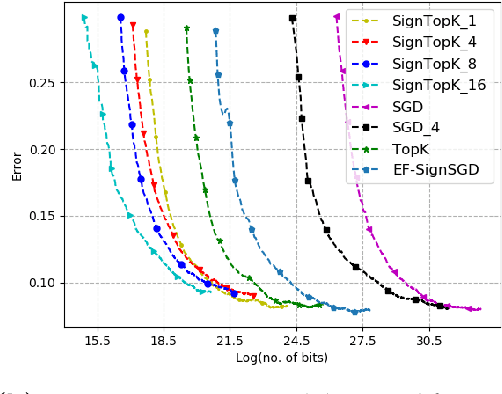
Abstract:Communication bottleneck has been identified as a significant issue in distributed optimization of large-scale learning models. Recently, several approaches to mitigate this problem have been proposed, including different forms of gradient compression or computing local models and mixing them iteratively. In this paper we propose \emph{Qsparse-local-SGD} algorithm, which combines aggressive sparsification with quantization and local computation along with error compensation, by keeping track of the difference between the true and compressed gradients. We propose both synchronous and asynchronous implementations of \emph{Qsparse-local-SGD}. We analyze convergence for \emph{Qsparse-local-SGD} in the \emph{distributed} setting for smooth non-convex and convex objective functions. We demonstrate that \emph{Qsparse-local-SGD} converges at the same rate as vanilla distributed SGD for many important classes of sparsifiers and quantizers. We use \emph{Qsparse-local-SGD} to train ResNet-50 on ImageNet, and show that it results in significant savings over the state-of-the-art, in the number of bits transmitted to reach target accuracy.
 Add to Chrome
Add to Chrome Add to Firefox
Add to Firefox Add to Edge
Add to Edge